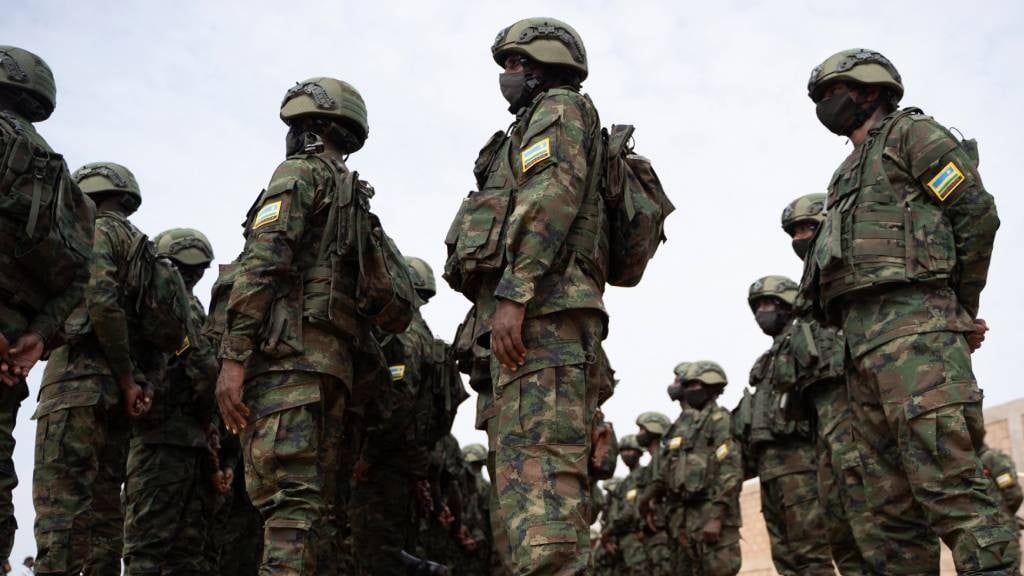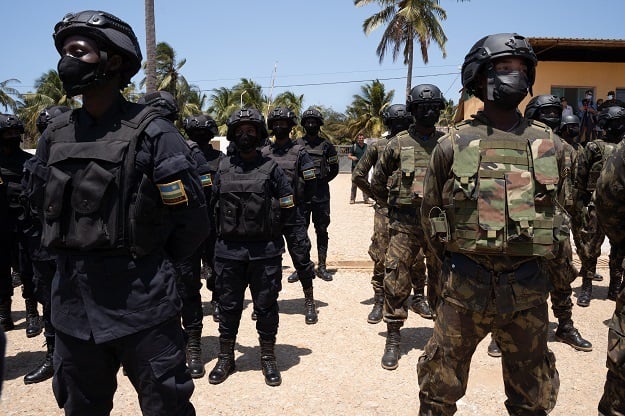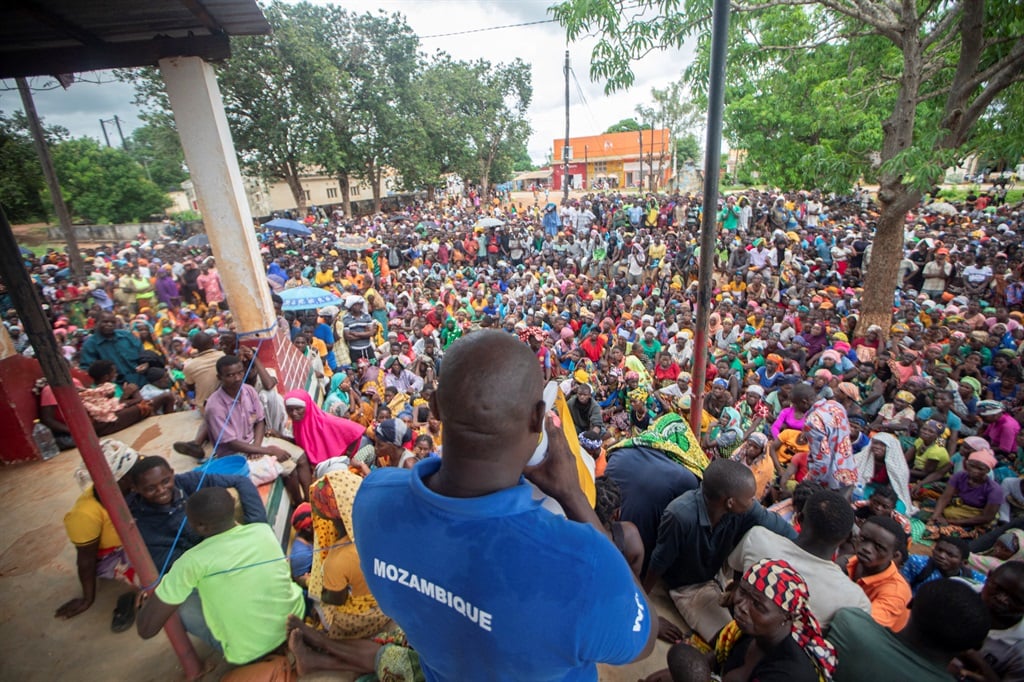Rwandan soldiers from Rwanda Defence Forces (RDF) and Rwandan policemen prepare to board a ‘Rwandair’ plane for a military mission to Mozambique at Kanombe airport, Kigali, Rwanda. (Simon Wohlfahrt/AFP)
- Rwanda plans to send more troops to Mozambique’s Cabo Delgado when a mostly South African force withdraws.
- A SADC Standby Force in Mozambique is expected to leave the newly jihadist-hit area in June.
- Rwanda remains unhappy about a South African led force deployed, to its surprise, in neighbouring DRC.
Rwanda plans to put more boots on the ground in Mozambique’s oil-rich Cabo Delgado when the SADC Standby Force in Mozambique (Samim) withdraws in about two months, a senior Rwanda Defence Force (RDF) commander has disclosed.
The deployment is due to be funded by new money from the European Union.
Jihadist attacks have closed hundreds of schools and displaced thousands of people in Cabo Delgado.
Rwanda already has a personnel count of more than 2 500 in Mozambique, Brigadier General Patrick Karuretwa, who heads the Rwandan Defence Force’s international cooperation, told journalists in Kigali.
That force was deployed just after the SADC bloc sent in a roughly equivalent number of soldiers, two-thirds of them from South Africa.
READ | Macron believes France, allies ‘could have stopped’ Rwanda genocide
The two armies operated in different parts of Cabo Delgado and, at first, they didn’t share information. They later cooperated in some operations.
Now Rwanda is preparing to go it alone.
The withdrawal of SADC troops “forces us to take certain measures”, said Karuretwa.
“We will be training Mozambican soldiers to take over where Samim was deployed,” he said.
He added:
We are also increasing our troops and making them more mobile to cover more areas.
Pockets of violence, EU support
Karuretwa said Rwanda’s intervention had helped bring relative calm to Cabo Delgado, but added that what he described as pockets of violence remained.
In mid-2023, SADC claimed it had achieved its objective of reducing the capacity of the Islamic insurgency to destabilise Cabo Delgado.
But soon after, a new wave of attacks started.
Some fear the jihadists could regain a solid foothold, which would, in turn, give their umbrella group, the Islamic State, a bridgehead in Southern Africa.
Rwanda’s intervention in Mozambique is outside the United Nations mandate, via a bilateral agreement between Maputo and Kigali.
Early this week, the European Union announced plans to donate about R380 million to help the RDF’s mission in Cabo Delgado.
This grant will be provided through the EU’s programme to promote global peace.
Rwanda is one of the world’s top contributors to peacekeeping missions. Currently, it has 2 100 troops in the Central African Republic (CAR) and more than a thousand attached to UN forces.
This makes for well over 5 000 soldiers deployed elsewhere in Africa.
Karuretwa said Rwanda’s appetite for contributing troops to peacekeeping missions was because the they had direct experience of how bad peacekeeping could affect a country.
He said in 1994, UN peacekeepers let Rwanda down when they withdrew from the country, so failing to prevent a genocide.
It is generally accepted that at least 800 000 people, mostly Tutsis, died as a result, though Rwanda’s government puts the figure at well above one million.
‘Caught by surprise’ by SADC
Rwanda was at pains to explain its mission in Mozambique to neighbouring countries before it deployed, said Karuretwa.
It did not receive the same courtesy in return, when a force led by South Africa was deployed “just next door”.
Karuretwa said Rwanda was caught by surprise when troops from South Africa, Malawi and Tanzania arrived in the Democratic Republic of the Congo (DRC) to form SAMIDRC, the SADC Mission in the DRC.
In March, Rwanda wrote to the UN Security Council, asking it to not support SAMIDRC logistically and technically, because that risked a regional war.
There has been a sharp rise in rhetoric between the DRC and Rwanda, with neither party discounting a full-blown war.
RDF spokesperson Lieutenant Colonel Simon Kabera said Rwanda was concerned that SAMIDRC was fighting alongside the Democratic Forces for the Liberation of Rwanda (FLDR).
FLDR is an ethnic Hutu group opposed to President Paul Kagame’s government.
Since the deployment of SAMIDRC, Rwanda said it had not directly spoken to South Africa, Malawi, or Tanzania about the issue.
Representatives said it hoped to do so when the time was right.
The News24 Africa Desk is supported by the Hanns Seidel Foundation. The stories produced through the Africa Desk and the opinions and statements that may be contained herein do not reflect those of the Hanns Seidel Foundation.
Crédito: Link de origem







Comentários estão fechados.